Who
doesn’t like traveling and getting a good night’s sleep? But if you
have developed a sudden and increased urge to urinate, even these little
joys become a burden. Many individuals suffer from this condition,
which is caused by underlying issues like diabetes or a urinary tract
infection. Do you want to get relief from this bothersome frequent
urination condition naturally? Read on to know more.
Given below are some of the possible causes of frequent urination.
Some of the common causes of urinary frequency are:
To get the required amounts of these vitamins, you can consume more of citrus fruits, spinach, kale, green peppers, carrots, apricots, papaya, and eggs. You may also take additional supplements for these vitamins after consulting your doctor.
These remedies will undoubtedly help in relieving urinary frequency effectively. You must also pay extra attention to your choice of foods and drinks to speed up your recovery. We have come up with a diet chart that can help you.
Source Click here
Table Of Contents
- What Is Urinary Frequency?
- What Causes Frequent Urination?
- Symptoms Of Frequent Urination
- Natural Ways To Reduce Your Urge To Urinate Frequently
- Diet Chart
- Prevention Tips
What Is Urinary Frequency?
Urinary frequency simply means having to visit the washroom more frequently than usual. Urinary frequency is not similar to urinary incontinence as the latter is a result of poor control over your bladder.Given below are some of the possible causes of frequent urination.
What Causes Frequent Urination?
- Drinking too much alcohol or caffeine
- Kidney problems
- Urinary bladder problems
- Diabetes mellitus
- Pregnancy
- Anxiety
- Medications like diuretics
- Stroke
- Brain or nervous system conditions
- Urinary tract infection
- Tumor in your pelvic area
- Overactive bladder syndrome (OAB)
- Bladder cancer
- Kidney or bladder stones
- Urinary incontinence
- Medical treatments like radiation of the pelvic region
- Sexually transmitted infection like chlamydia
Symptoms Of Frequent Urination
- Pain while urinating
- Urine that has a bloody or an unusual color
- Urinary incontinence or gradual loss of bladder control
- Increased urge to urinate but difficulty in urinating
- An unusual discharge from the vagina or penis
- Increased thirst or appetite
- Fever
- Chills
- Vomiting
- Nausea
- Lower back pain
Natural Ways To Reduce Your Urge To Urinate Frequently
1. Essential Oils
a. Cypress Oil
You Will Need
- 7 drops of cypress oil
- 1 teaspoon of any carrier oil (coconut or olive oil)
What You Have To Do
- Mix seven drops of cypress oil with a teaspoon of any carrier oil.
- Apply this mixture to your private parts and massage gently.
How Often You Should Do This
Do this once daily.Why This Works
Cypress oil possesses strong astringent and vasoconstricting properties, which tighten the loose bladder tissues and reduce your urge to urinate frequently (1).b. Lavender Oil
You Will Need
- 3-4 drops of lavender oil
- A diffuser
What You Have To Do
- Add three to four drops of lavender oil to a diffuser filled with water.
- Inhale the diffused aroma.
How Often You Should Do This
Do this 1 to 2 times daily.Why This Works
Stress is one of the causes of increased urinary frequency. Lavender oil exhibits stress relieving properties that keep you relaxed and relieve stress (2).2. Baking Soda
You Will Need
- ½ teaspoon of baking soda
- 1 glass of water
What You Have To Do
- Mix half a teaspoon of baking soda with a glass of water.
- Consume this solution.
How Often You Should Do This
Consume this baking soda mixture once daily.Why This Works
The alkaline nature of baking soda can be used to alkalize your urine, which reduces the symptoms of urinary frequency and other conditions that may be causing it (3).3. Yogurt
You Will Need
A small bowl of yogurtWhat You Have To Do
Consume a bowl of plain yogurt.How Often You Should Do This
Do this once daily.Why This Works
Yogurt is a rich source of probiotics, which are good bacteria that are beneficial for your gut as well as overall health. Yogurt also helps in treating urinary tract infection, which is another cause of urinary frequency (4).4. Holy Basil (Tulsi) Leaves
You Will Need
- 8-10 basil leaves
- Water (as required)
- 2 teaspoons of honey
What You Have To Do
- Crush the basil leaves to extract the juice.
- Mix the basil extract with two teaspoons of honey.
- Drink this mixture.
How Often You Should Do This
Consume this mixture once every morning, preferably on an empty stomach.Why This Works
Holy basil (tulsi) is an antioxidant medicinal herb that helps in eliminating all the toxins from your body. They also possess natural antimicrobial properties that can help treat urinary tract infection, which is a major cause of urinary frequency (5).5. Cranberry Juice
You Will Need
1 cup of unsweetened cranberry juiceWhat You Have To Do
Consume a cup of unsweetened cranberry juice.How Often You Should Do This
Drink this juice 1 to 2 times daily.Why This Works
Cranberry juice contains naturally-occurring antioxidants called proanthocyanidins (6). These compounds act as anti-adhesion molecules that prevent the infection-causing bacteria from sticking to your urinary walls. This, in turn, treats urinary infection as well as its symptoms like urinary frequency.6. Green Tea
You Will Need
- 1 teaspoon of green tea
- 1 cup of hot water
- Honey
What You Have To Do
- Add a teaspoon of green tea to a cup of hot water.
- Steep for 5 to 7 minutes and strain.
- Add a little honey to the warm tea and consume it.
How Often You Should Do This
Drink green tea twice daily.Why This Works
Green tea is of great help if the cause of your urinary frequency is a urinary tract infection. The antimicrobial properties of green tea help in treating this condition (7).Caution
If your urinary frequency is a result of a condition other than a urinary tract infection, do not rely on this remedy as green tea is a powerful diuretic that can increase your urge to urinate.7. Vitamins
Vitamins C and A are quite beneficial in the treatment of urinary frequency. Vitamin C restricts microbial growth that may be responsible for causing a urinary tract infection, and vitamin A helps treat bladder infections that may be causing urinary frequency (8), (9).To get the required amounts of these vitamins, you can consume more of citrus fruits, spinach, kale, green peppers, carrots, apricots, papaya, and eggs. You may also take additional supplements for these vitamins after consulting your doctor.
8. Apple Cider Vinegar
You Will Need
- 1 teaspoon of apple cider vinegar
- 1 glass of water
What You Have To Do
- Add a teaspoon of apple cider vinegar to a glass of water and mix well.
- Consume this mixture.
How Often You Should Do This
You must consume this mixture once daily.Why This Works
The antimicrobial and anti-inflammatory properties of apple cider vinegar can help treat urinary tract infection and an overactive bladder (10).9. Saw Palmetto Tea
You Will Need
- 1 teaspoon of saw palmetto tea
- 1 cup of hot water
- Honey
What You Have To Do
- Add a teaspoon of saw palmetto to a cup of hot water.
- Steep for 5 to 7 minutes and strain.
- Add a little honey to the tea and consume immediately.
How Often You Should Do This
You must drink this tea 2 to 3 times daily.Why This Works
Saw palmetto helps reduce the increased urge to urinate by reducing the symptoms of enlarged prostate in men (11). It is also helpful in treating bladder and urinary tract infections in women (12).These remedies will undoubtedly help in relieving urinary frequency effectively. You must also pay extra attention to your choice of foods and drinks to speed up your recovery. We have come up with a diet chart that can help you.
Diet Chart
The following is a list of foods and drinks you must consume to combat urinary frequency.Best Foods And Drinks For An Overactive Bladder
- Fiber-rich foods like whole grains, cereals, barley, brown rice, oatmeal, beans, peas, apples, cabbage and carrots
- Herbal tea
- Bananas
- Coconut
- Grapes
- Watermelon
- Vegetables like broccoli, cucumbers, kale, spinach, and lettuce
- Protein-rich foods like fish, tofu, eggs, and chicken
Foods And Drinks To Avoid If You Have Urinary Frequency
- Carbonated drinks
- Alcohol
- Caffeinated drinks like coffee and tea
- Chocolates
- Sports drinks
- Citrus fruits
- Spicy foods
- Tomatoes
- Sugar
- Honey
- Raw onions
- Foods containing preservatives and artificial flavorings
Prevention Tips
- Maintain an active lifestyle by practicing Kegel exercises and yoga as they strengthen the pelvic and urethral muscles.
- Try bladder training (for 2 months) to help hold your urine for a longer time.
- Monitor your fluid intake because in some cases, drinking too much of fluids might be the main cause of increased urination.
Source Click here
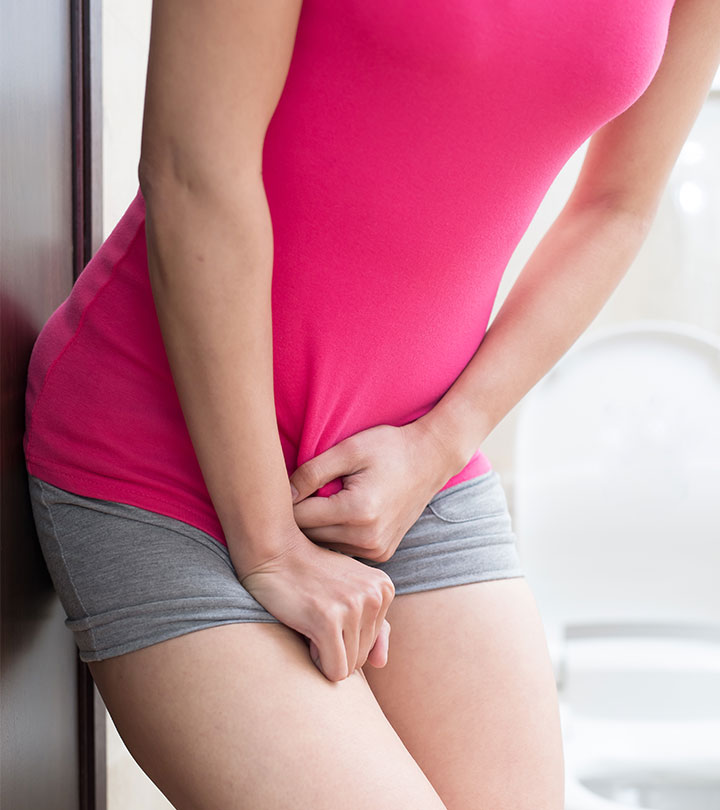
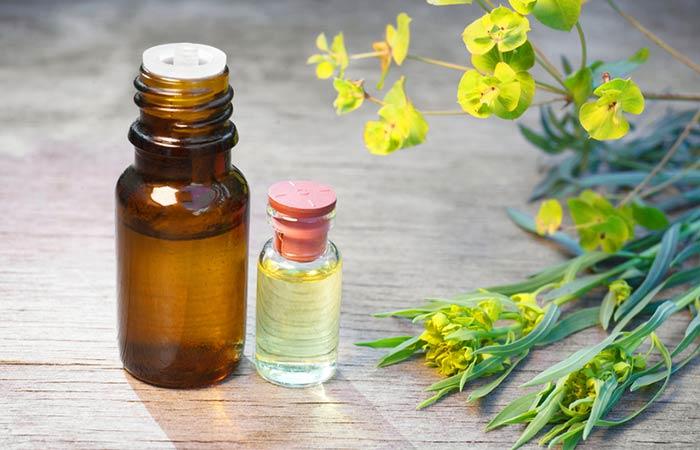
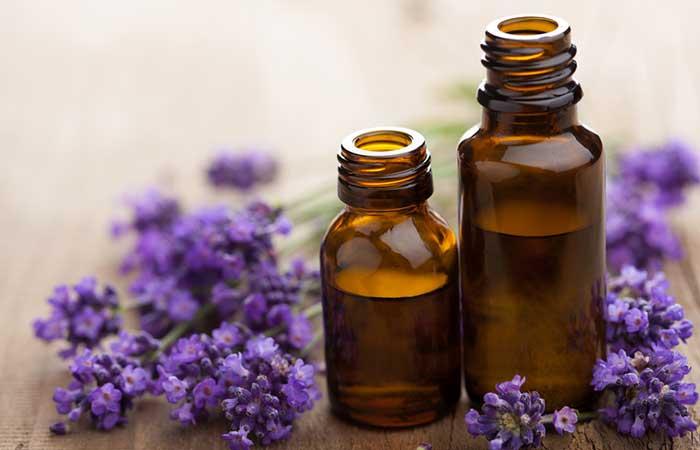
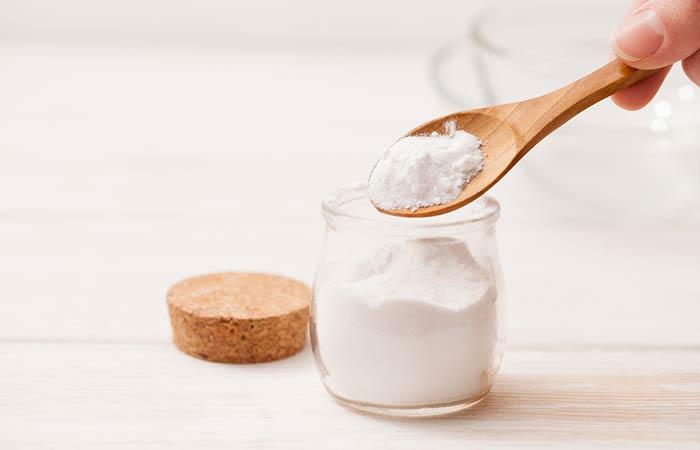

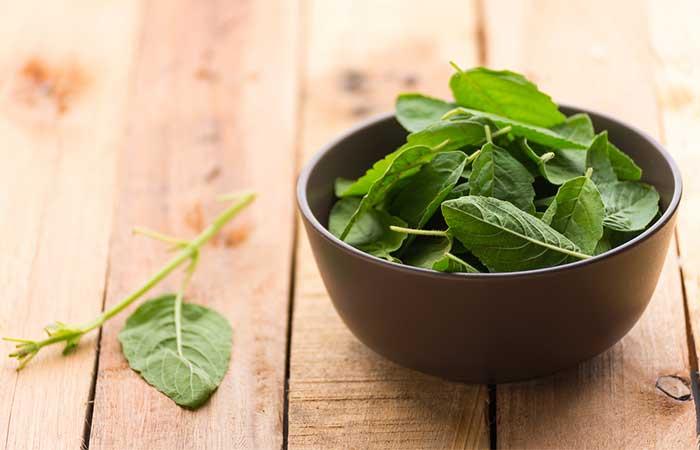
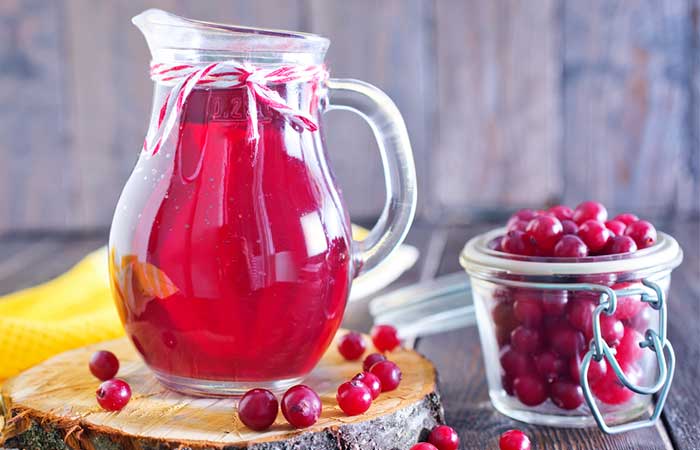



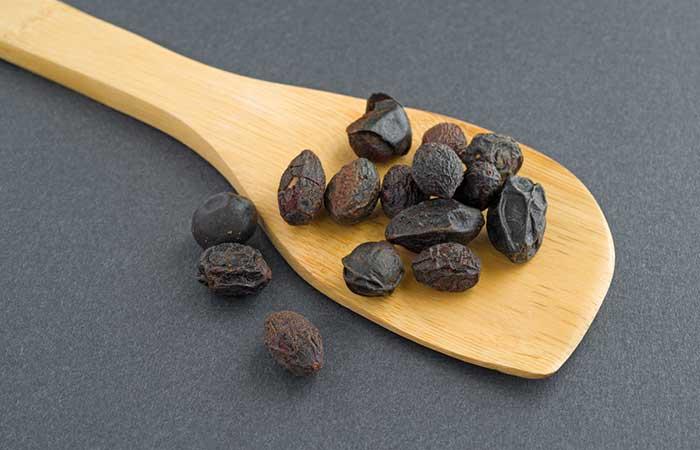
Comments
Post a Comment